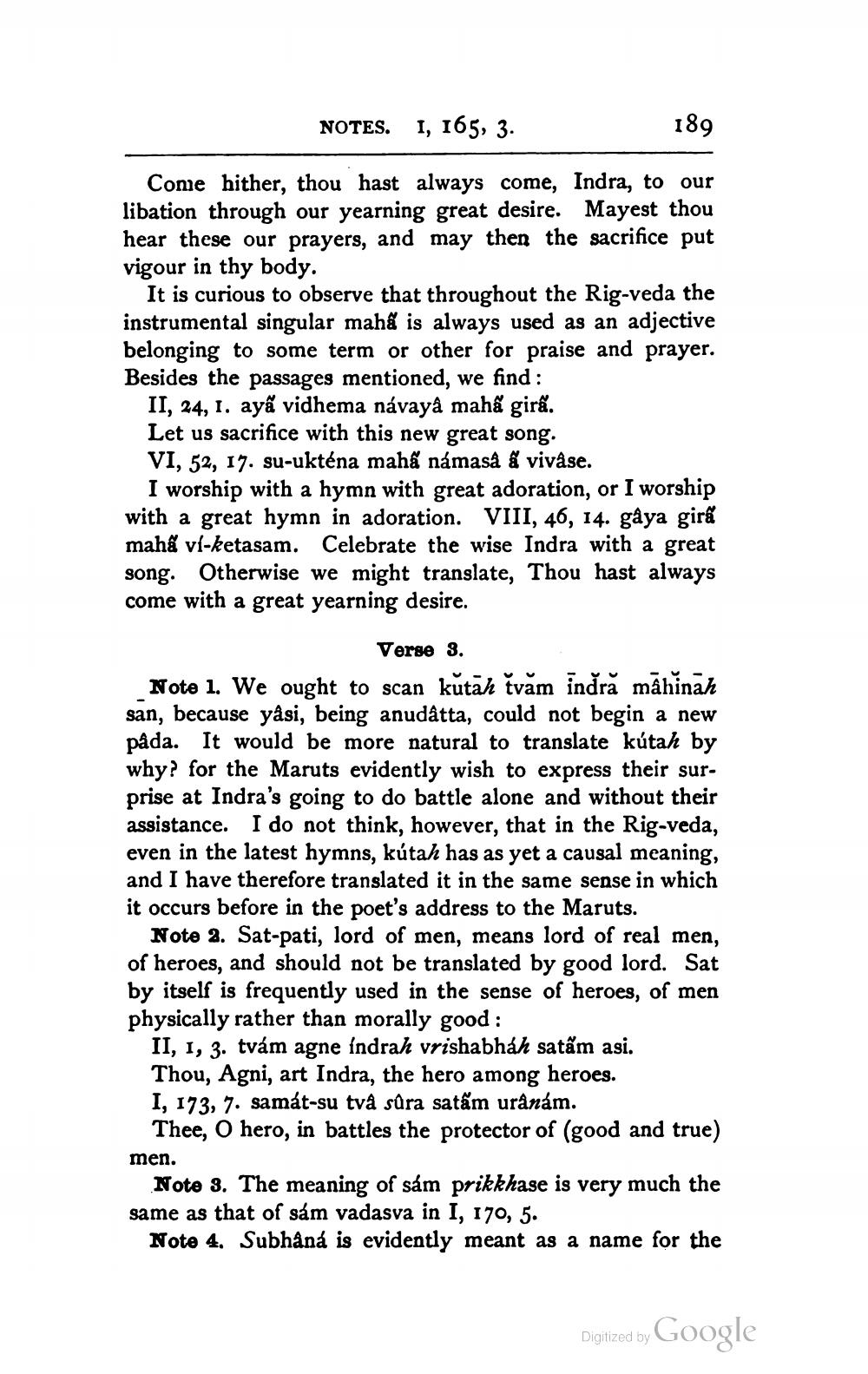________________
NOTES. I, 165, 3.
189
Come hither, thou hast always come, Indra, to our libation through our yearning great desire. Mayest thou hear these our prayers, and may then the sacrifice put vigour in thy body.
It is curious to observe that throughout the Rig-veda the instrumental singular mahá is always used as an adjective belonging to some term or other for praise and prayer. Besides the passages mentioned, we find :
II, 24, 1. ayã vidhema návaya mahå gira. Let us sacrifice with this new great song. VI, 52, 17. su-ukténa mahá námaså å vivase.
I worship with a hymn with great adoration, or I worship with a great hymn in adoration. VIII, 46, 14. gaya gira maha vi-ketasam. Celebrate the wise Indra with a great song. Otherwise we might translate, Thou hast always come with a great yearning desire.
Verse 3. Note 1. We ought to scan kütah tvam indră māhinah san, because yasi, being anudatta, could not begin a new pada. It would be more natural to translate kútah by why? for the Maruts evidently wish to express their surprise at Indra's going to do battle alone and without their assistance. I do not think, however, that in the Rig-veda, even in the latest hymns, kútah has as yet a causal meaning, and I have therefore translated it in the same sense in which it occurs before in the poet's address to the Maruts.
Note 2. Sat-pati, lord of men, means lord of real men, of heroes, and should not be translated by good lord. Sat by itself is frequently used in the sense of heroes, of men physically rather than morally good :
II, 1, 3. tvám agne indrah vrishabháh satấm asi. Thou, Agni, art Indra, the hero among heroes. I, 173, 7. samát-su två sûra satâm urânám.
Thee, O hero, in battles the protector of (good and true) men.
Note 3. The meaning of sám prikkhase is very much the same as that of sám vadasva in I, 170, 5.
Note 4. Subhâná is evidently meant as a name for the
Digitized by
Digitized by Google




